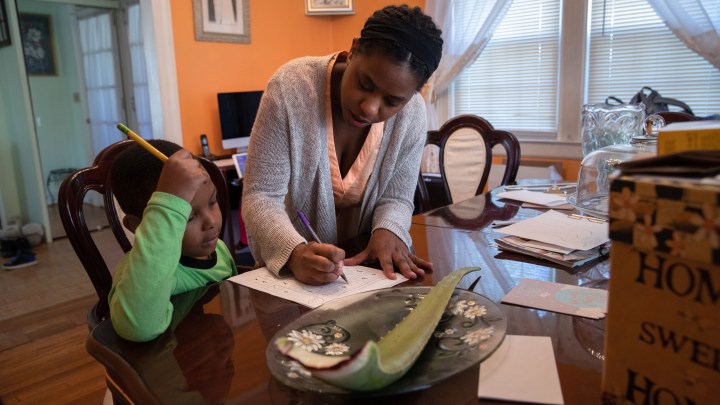
Black women twice as likely as white men to suffer economically from COVID-19
Black women twice as likely as white men to suffer economically from COVID-19

The COVID-19 pandemic is highlighting and exacerbating economic inequality in the U.S. New numbers reveal how risk associated with the virus is playing out for different demographic groups. We’re learning that risk is far higher in communities of color.
New research from McKinsey & Company explores the impact of COVID-19 on black Americans, looking at the industries and geographic areas where black people are working.
“Thirty-nine percent of black jobs are at risk, versus 34% for the broader population,” said Shelley Stewart, a partner at McKinsey. “And, yeah, some folks may say it’s only five percentage points, but that’s a pretty big difference.”
That could be close to a million additional black jobs at risk.
That’s echoed by research conducted by LeanIn.org, which found that risk of job loss is already a reality for many black women in particular.
“We know black women are twice as likely as white men to say they’ve been either laid off, furloughed or had their hours or pay reduced because of the pandemic,” said LeanIn chief executive Rachel Thomas.
One example of many: 48-year-old Zaborah Roane in Raleigh, North Carolina. She was working at an early childhood education center with about 10 toddlers before she was laid off due to COVID-19.
“I do miss them, now. I don’t even know if they’ll like even remember me,” Roane said. She also doesn’t know when she’ll go back to work. She’s getting some unemployment insurance and financial help from her union.
Roane was unsurprised to learn black women were feeling the economic impact more than others.
“We’re the ones that are in these industries that don’t have health insurance, that don’t have paid sick time off. We don’t make a lot of money. So we’re suffering a lot right now,” Roane said.
According to Thomas, the current economic shock has been exacerbated by inequality present before the pandemic.
“Women, on average, are paid 18% less than men here in the U.S.,” she said. “It’s worse for black women. They make 38% less than white men. It’s worse from Latinas. They make 45% less than white men.”
Thomas says those lower wages translate to less savings, which means less of a safety net when women are faced with an unexpected job loss of an unknown duration.
There’s a lot happening in the world. Through it all, Marketplace is here for you.
You rely on Marketplace to break down the world’s events and tell you how it affects you in a fact-based, approachable way. We rely on your financial support to keep making that possible.
Your donation today powers the independent journalism that you rely on. For just $5/month, you can help sustain Marketplace so we can keep reporting on the things that matter to you.


















